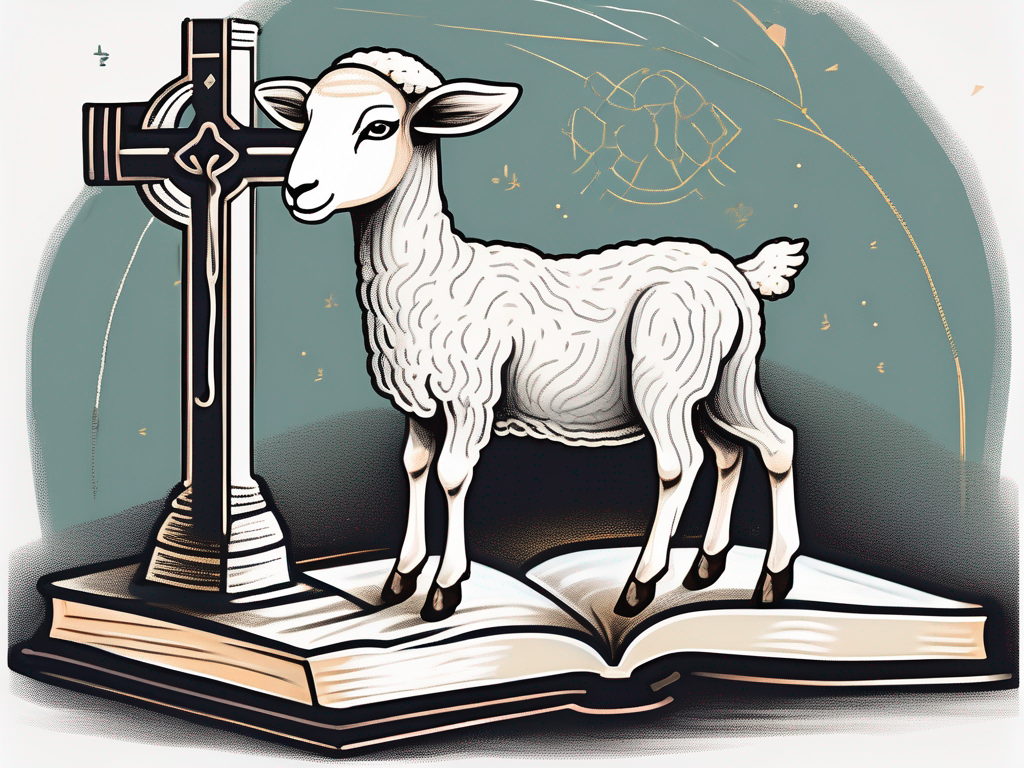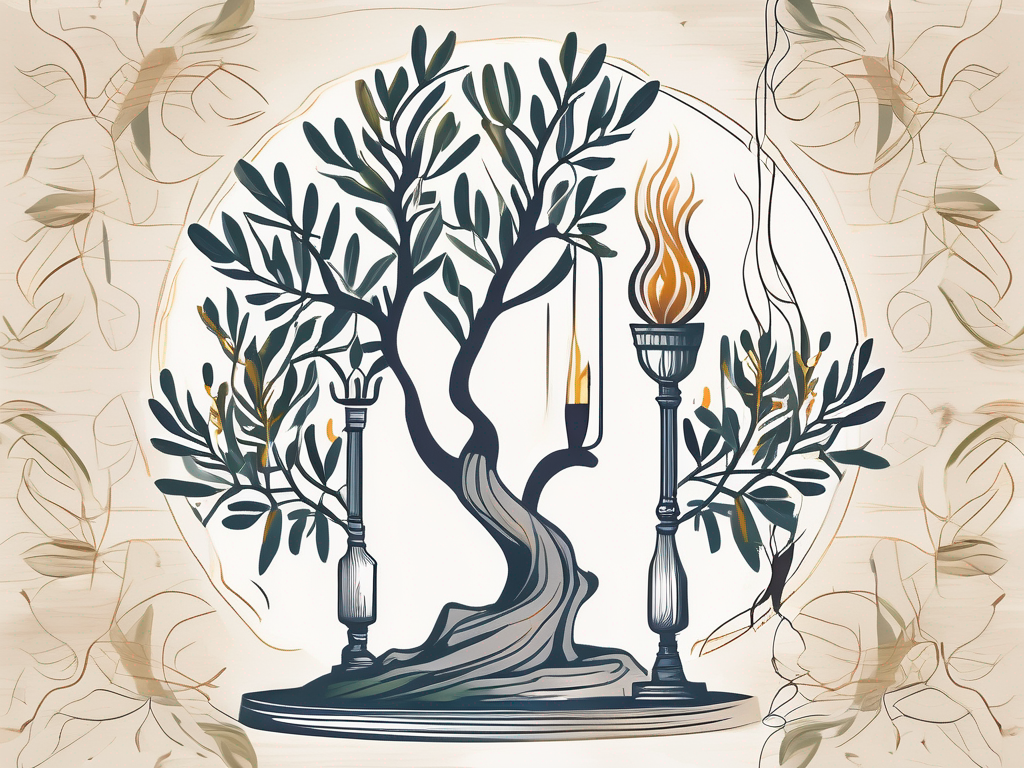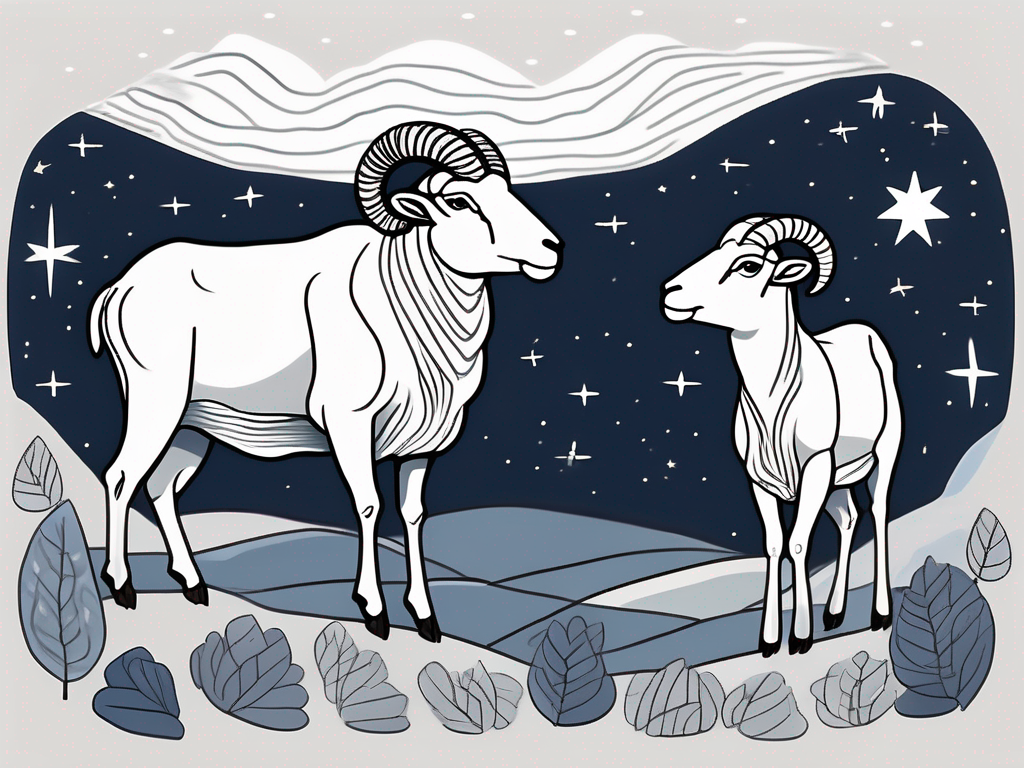Rachel is a significant figure in Judaism, with a rich and complex story that spans biblical times to the present day. Understanding her biblical context is crucial to appreciating her role in Jewish tradition, as well as her lasting impact on contemporary Jewish life.
Understanding the Biblical Context of Rachel
Rachel’s Early Life and Family Background
Rachel, a name that resonates throughout the pages of the Bible, was born into a prominent family in Mesopotamia. She was the youngest daughter of Laban, a relative of Abraham, and her sister Leah would also play a significant part in the biblical narrative.
As Rachel grew up in the bustling city, her beauty and grace became the talk of the town. People would whisper in awe as she walked by, her presence captivating all who laid eyes on her. But little did they know, her journey was not without obstacles.
Laban, known for his deceitful nature, would unknowingly alter the course of Rachel’s life. In a twist of fate, Rachel found herself unexpectedly married to Jacob, who had been promised to Leah. This complex family dynamic set the stage for Rachel’s transformative role in the book of Genesis.
Rachel’s Role in Genesis
Within the pages of Genesis, Rachel’s story unfolds, painting a vivid portrait of a woman whose life was intertwined with divine purpose. She was not just a beloved wife to Jacob, but also a mother to his children, making her role in the biblical narrative all the more significant.
Rachel’s journey was not without its challenges. Infertility plagued her, causing her heart to ache with longing for a child. But through perseverance and unwavering faith, Rachel’s prayers were answered, and she conceived two sons, Joseph and Benjamin. These births became a testament to her resilience and unwavering trust in God’s plan.
Her love for Jacob was unparalleled, and her determination to build a family drove her actions throughout Genesis. Rachel’s loyalty, however, created tension within her relationship with Leah, her sister. Their tale of sisterly rivalry and the birth of the twelve tribes of Israel stands as a testament to the complexities of human relationships and the divine orchestration of history.
As Rachel’s story unfolds, we are reminded of the power of faith, the strength of a mother’s love, and the intricate tapestry of God’s plan. Her life serves as an inspiration, encouraging us to trust in the divine timing and purpose that we may not always understand.
The Significance of Rachel in Jewish Tradition
Rachel as a Symbol of Motherhood
In Jewish tradition, Rachel is widely revered as a symbol of motherhood. Her devotion to her children, particularly her famed son Joseph, resonates deeply with the values of nurturing and protection within the Jewish community.
Rachel’s story is a testament to the strength and resilience of mothers. Despite facing numerous challenges, including infertility and the pain of losing children, Rachel’s love for her family never wavered. Her unwavering commitment to her children serves as an inspiration for Jewish mothers throughout the ages, reminding them of the power and significance of the maternal bond.
Throughout history, Jewish mothers have looked to Rachel as a role model, drawing strength from her story and emulating her dedication to their own families. Her example continues to shape the way Jewish mothers approach their roles, emphasizing the importance of love, protection, and nurturing in raising children.
Rachel’s Influence on Jewish Prayer and Rituals
Rachel’s impact extends beyond her role as a mother. In Jewish prayer and rituals, she is revered as a benevolent and compassionate figure, someone who intercedes with God on behalf of her people.
Her tomb, located near Bethlehem, has become a place of pilgrimage where Jews pray for blessings, fertility, and consolation. The significance of this site cannot be overstated, as it represents the connection between Rachel and the Jewish people throughout history.
For centuries, Jews have turned to Rachel’s tomb as a place of solace and hope. They seek her intercession, believing that her closeness to God allows her to advocate for them in times of need. The act of visiting her tomb is seen as a way to strengthen one’s faith and find comfort in the presence of a beloved matriarch.
In addition to the pilgrimage to her tomb, Rachel’s influence is also evident in various Jewish prayers and rituals. Her name is invoked in prayers for fertility, as she is believed to have experienced the pain of infertility herself. Jewish couples struggling to conceive often turn to Rachel, seeking her blessings and guidance in their journey towards parenthood.
Furthermore, Rachel’s compassion and empathy make her a central figure in prayers for consolation and healing. Her ability to understand and empathize with the pain of others has made her a source of comfort for countless individuals who are facing hardships or grieving the loss of loved ones.
Overall, Rachel’s enduring influence has shaped Jewish customs and practices in profound ways. Her story serves as a reminder of the power of motherhood and the importance of seeking solace and guidance from those who came before us.
Rachel’s Legacy in Modern Judaism
In contemporary Judaism, Rachel’s story is interpreted in various ways, reflecting the diversity of Jewish thought and beliefs. Some view her as a model of resilience and faith, while others focus on the complexities of her relationships and the challenges she faced.
One interpretation of Rachel’s story highlights her unwavering faith in God. Despite facing numerous hardships, including infertility and the competition with her sister Leah for her husband’s affection, Rachel remained steadfast in her belief in God’s plan for her life. Her unwavering faith serves as an inspiration for many individuals facing their own trials and tribulations.
Another perspective on Rachel’s story delves into the complexities of her relationships. As the favored wife of Jacob, she experienced both love and jealousy from her sister Leah. This dynamic highlights the complexities of human emotions and the challenges that can arise within family relationships.
Furthermore, Rachel’s story continues to inspire debates and discussions among scholars and theologians, offering new perspectives on women’s roles, marital dynamics, and the human experience. Her narrative serves as a rich source of exploration for those seeking to understand the complexities of human relationships and the role of faith in navigating life’s challenges.
Rachel’s Impact on Jewish Feminist Thought
Rachel’s legacy has had a significant impact on Jewish feminist thought. Her story, along with that of her sister Leah, has sparked discussions on gender dynamics, autonomy, and the struggle for equality in traditional societies.
One aspect of Rachel’s story that resonates with Jewish feminists is her role as a matriarch. As a matriarch, Rachel challenged traditional notions of power and authority, demonstrating that women can play influential roles within religious and societal structures.
Additionally, Rachel’s story has paved the way for new interpretations of women’s agency within religious texts. Her actions, such as negotiating with her husband for the mandrakes that were believed to enhance fertility, showcase her ability to assert herself and make decisions that impact her own life.
Overall, Rachel’s story continues to shape the feminist discourse within Judaism. It serves as a reminder of the strength and resilience of women throughout history and encourages ongoing conversations about gender equality and women’s empowerment within religious contexts.
The Tomb of Rachel: A Sacred Site
History and Significance of Rachel’s Tomb
The tomb of Rachel holds tremendous historical and spiritual significance within Judaism. According to tradition, Rachel, the beloved wife of Jacob, was buried there after her tragic death during childbirth. Her tomb is located in the city of Bethlehem, a place deeply rooted in biblical history.
Rachel’s story is one of love, loss, and resilience. She is remembered as a matriarch, a mother figure, and a symbol of devotion. Her tomb has become a sacred site, a place where her memory is honored and her spirit is believed to reside.
Throughout the centuries, the tomb of Rachel has served as a beacon of hope for the Jewish people. It is a place where individuals seek solace, guidance, and a sense of connection to their ancestral roots. Pilgrims come from far and wide to pay their respects and offer prayers, seeking blessings and divine intervention.
The tomb itself is a beautiful structure, adorned with intricate carvings and adorned with colorful tapestries. The atmosphere is one of reverence and tranquility, as visitors enter with a mixture of awe and humility.
Rachel’s Tomb in Contemporary Jewish Pilgrimage
Today, the tomb of Rachel remains a vital site for Jewish pilgrimage and devotion. Thousands of visitors from around the world come to pray at this sacred location, reaffirming their faith and seeking blessings.
As one approaches the tomb, they are greeted by a vibrant marketplace, bustling with activity. The air is filled with the aroma of freshly baked bread, spices, and incense. Vendors sell religious artifacts, traditional clothing, and symbolic items that pilgrims can take home as a reminder of their spiritual journey.
Inside the tomb, the walls are adorned with handwritten prayers, notes, and photographs left by visitors. These offerings are a testament to the deep connection people feel to Rachel and the power of her intercession.
Throughout the year, the tomb is the site of various celebrations and events. On Rachel’s yahrzeit (anniversary of her passing), the tomb is filled with flowers, candles, and the voices of those reciting prayers and singing hymns. It is a time of reflection, remembrance, and renewal.
Her tomb serves as a testament to Rachel’s enduring legacy and the profound impact she has had on Jewish spirituality and identity. It is a reminder of the power of faith and the lasting significance of individuals in shaping religious traditions.
With her compelling story and far-reaching influence, Rachel continues to captivate those seeking a deeper understanding of Jewish history, tradition, and spirituality. Her legacy shines as a testament to the complex and enduring nature of faith and the human experience.












